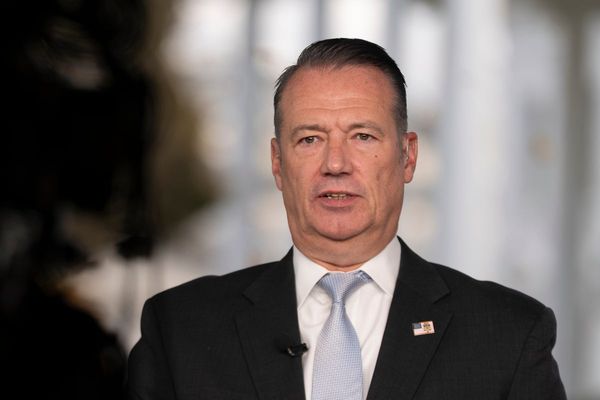
Hundreds of thousands of Centrelink payments were illegally cancelled because of a glitch in the automated system that runs the government’s controversial mutual obligations scheme, the peak body for community legal centres has said.
The analysis from Economic Justice Australia shows about 310,000 people had their Centrelink payments unlawfully cancelled between 2020 and 2024 because they were not given enough time to reconnect to a job provider after missing a compulsory activity as part of their mutual obligations.
Jobseekers are required to meet mutual obligation requirements – such as attending meetings with an employment provider and applying for jobs – to continue to receive their payments. After jobseekers receive five demerits in the mutual obligation system, they enter what is called the “penalty zone”, where they risk having their payment completely cancelled.
Payment cancellations have been paused since July last year after the Department of Employment and Workplace Relations, which runs the system, said it had unlawfully cancelled the payments of 964 people.
But the Economic Justice Australia chief executive, Kate Allingham, said the organisation had used public payment cancellation data and recent legal cases to determine that the number is a lot higher.
“We pulled this together and put it to the department to ask them whether or not we were correct, and we were,” Allingham said.
Sign up: AU Breaking News email
“The system is being applied unlawfully at worst, and it’s defective administration at best. It’s thousands and thousands of people who are having really serious consequences because there are errors in the automated processes.”
EJA believes about 20% of the people affected could be eligible for some form of remediation and, while it is not considering a class action currently, it is “looking at options for litigation”.
Legally, payments are not allowed to be cancelled for 28 days after someone has missed a mutual obligation and providers are under no obligation to check why a person has not engaged. The cancellations, which may have affected people on jobseeker, youth allowance, parenting payment or disability support pension, happened before 28 days.
In 2021, “Jane”, who asked that her real name not be used, had just enrolled in the government’s New Enterprise Incentive Scheme (NEIS), which helped unemployed Australians start their own business.
Participants in the NEIS did not have to attend job provider meetings but Jane was enrolled with employment provider Wise, which then suspended and cancelled her payment after she did not show up for a meeting.
“I started receiving random calls, text messages from Wise employment,” she said.
“They just started harassing me throughout the year while I was in this small business program, and I complained to Centrelink over and over and over again.”
Jane, who is now 45 and lives in public housing in Melbourne, had been told in writing that because she was doing the NEIS she did not have to engage. She repeatedly contacted Centrelink about it but Wise continued to contact her. Then, in late 2020, her payment was suspended and was cancelled before 28 days had elapsed.
She had about $800 in the bank, which she lived off for several months.
“I didn’t pay my power bills, I didn’t pay my rent, I just couldn’t afford to pay it,” she said.
“I would survive on just very simple food, like bread and cereal, and I would have flour, so I would make muffins.”
After she ran out of money, Jane applied for jobseeker and tried to take her case to the tribunal but gave up because it was too much.
“I was actively trying to fight what had happened. I was trying to seek advice,” she said.
A spokesperson for the Antipoverty Centre, Kristin O’Connell, said the problem extends beyond cancellations to payment suspensions, which are triggered by a provider.
“What is fundamental to this is that while some of these processes can progress automatically, every single one of these things involves an unlawful decision by a human being at the beginning of the process,” O’Connell said.
Every month, payments for tens of thousands of recipients are still being suspended, government data shows. Between January and April this year, there were 157,680 payment suspensions.
O’Connell said the government should immediately pause payment suspension while the commonwealth ombudsman finishes its current investigation into the legality of the system.
“And the next most urgent thing that they need to do is to generously compensate every single person who has been affected by an unlawful decision,” she said.
“Because it is not just about people not receiving the income they needed to live on for the period of time that they lost their payment, it is about the extraordinary distress and harm and the consequences in people’s lives.”
Both the department and the employment minister, Amanda Rishworth, were contacted and asked how long they had been aware of the EJA report and how accurate the analysis was. Both refused to answer.
In a statement, Rishworth said the department had “assured” her that when the issues were detected they “quickly paused them”.
“Our government understands the importance of ensuring that systems and processes operate effectively, particularly when they interact with vulnerable people,” she said.
The best public interest journalism relies on first-hand accounts from people in the know.
If you have something to share on this subject, you can contact us confidentially using the following methods.
Secure Messaging in the Guardian app
The Guardian app has a tool to send tips about stories. Messages are end to end encrypted and concealed within the routine activity that every Guardian mobile app performs. This prevents an observer from knowing that you are communicating with us at all, let alone what is being said.
If you don't already have the Guardian app, download it (iOS/Android) and go to the menu. Select ‘Secure Messaging’.
SecureDrop, instant messengers, email, telephone and post
If you can safely use the Tor network without being observed or monitored, you can send messages and documents to the Guardian via our SecureDrop platform.
Finally, our guide at theguardian.com/tips lists several ways to contact us securely, and discusses the pros and cons of each.







